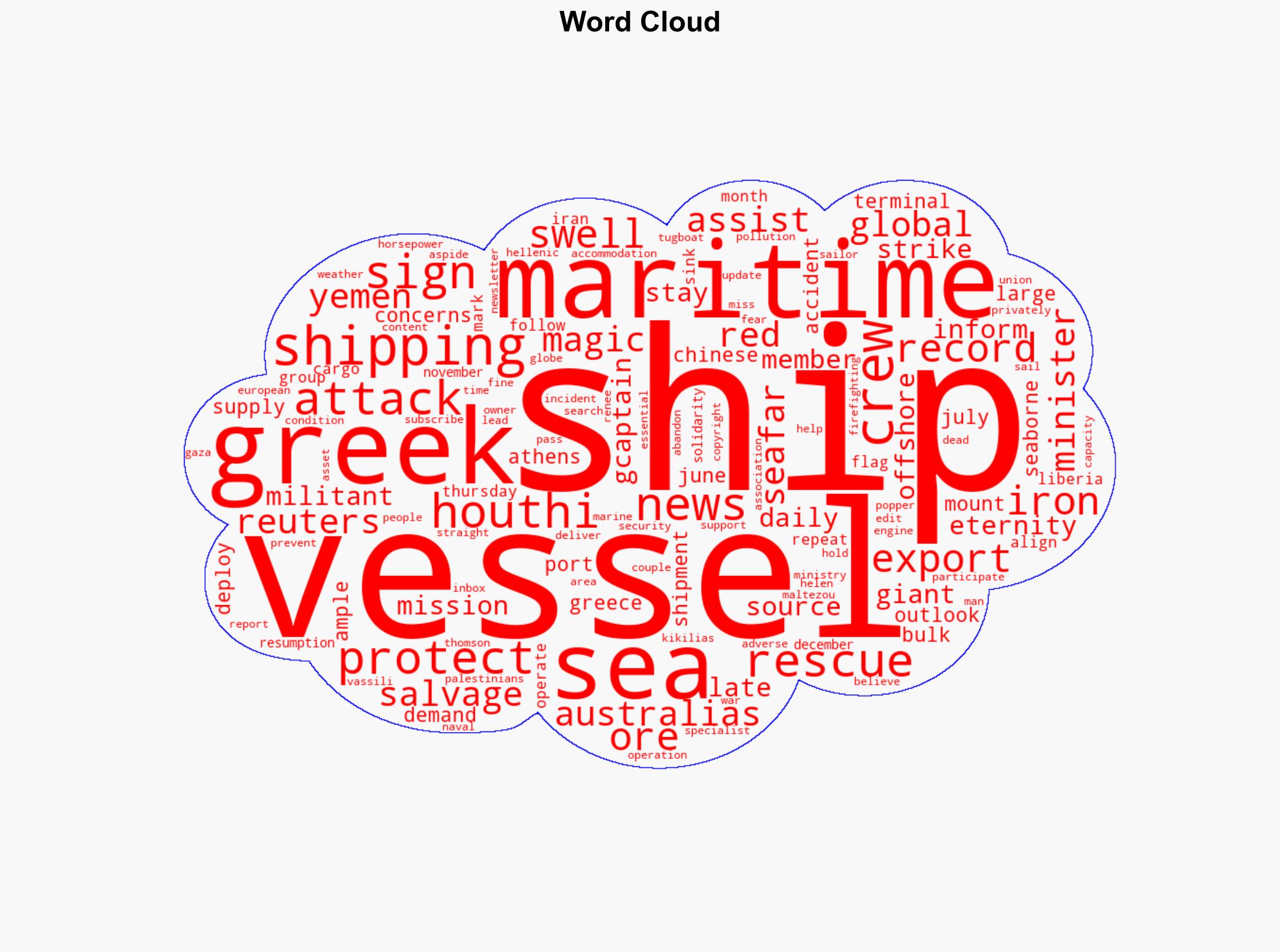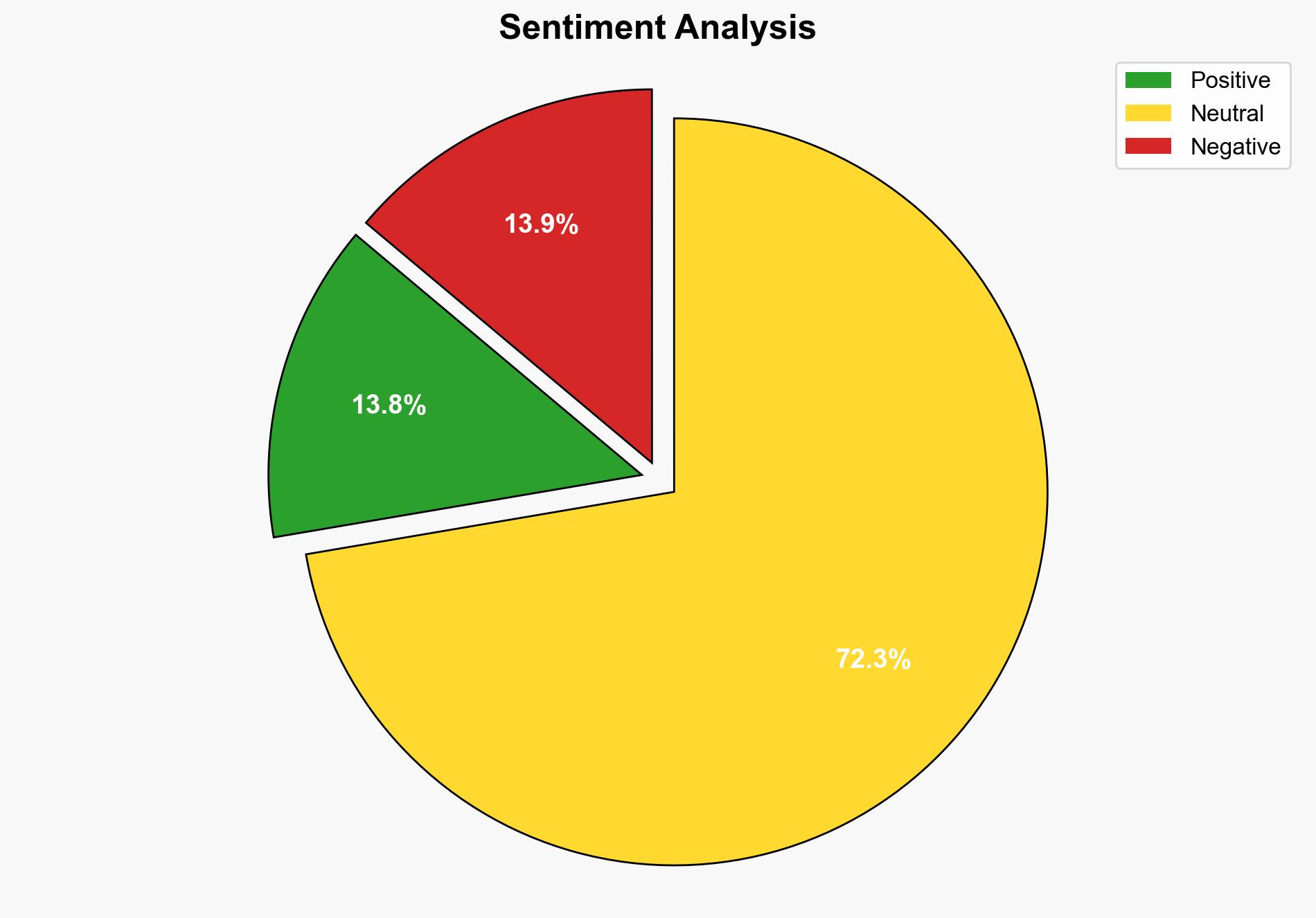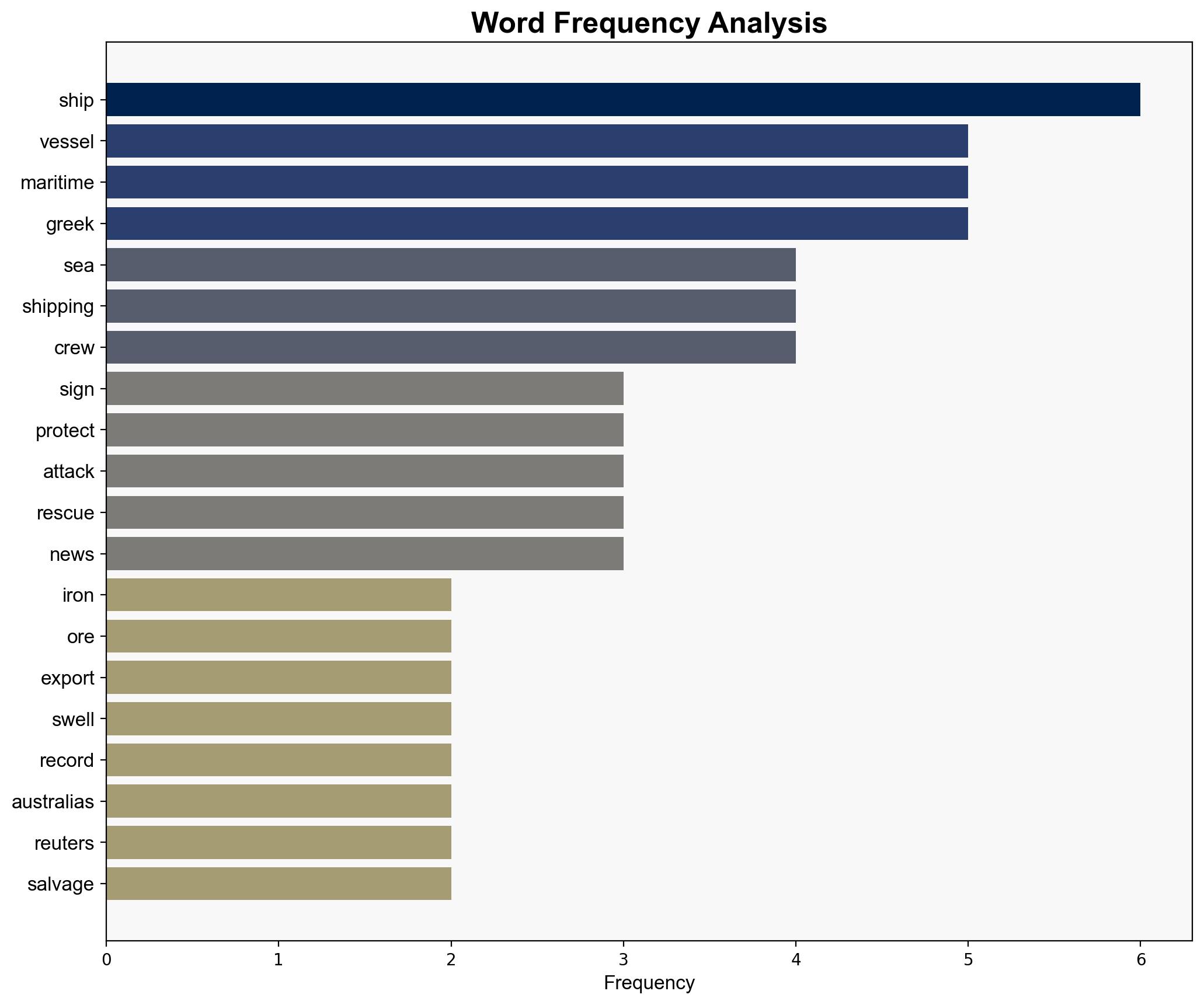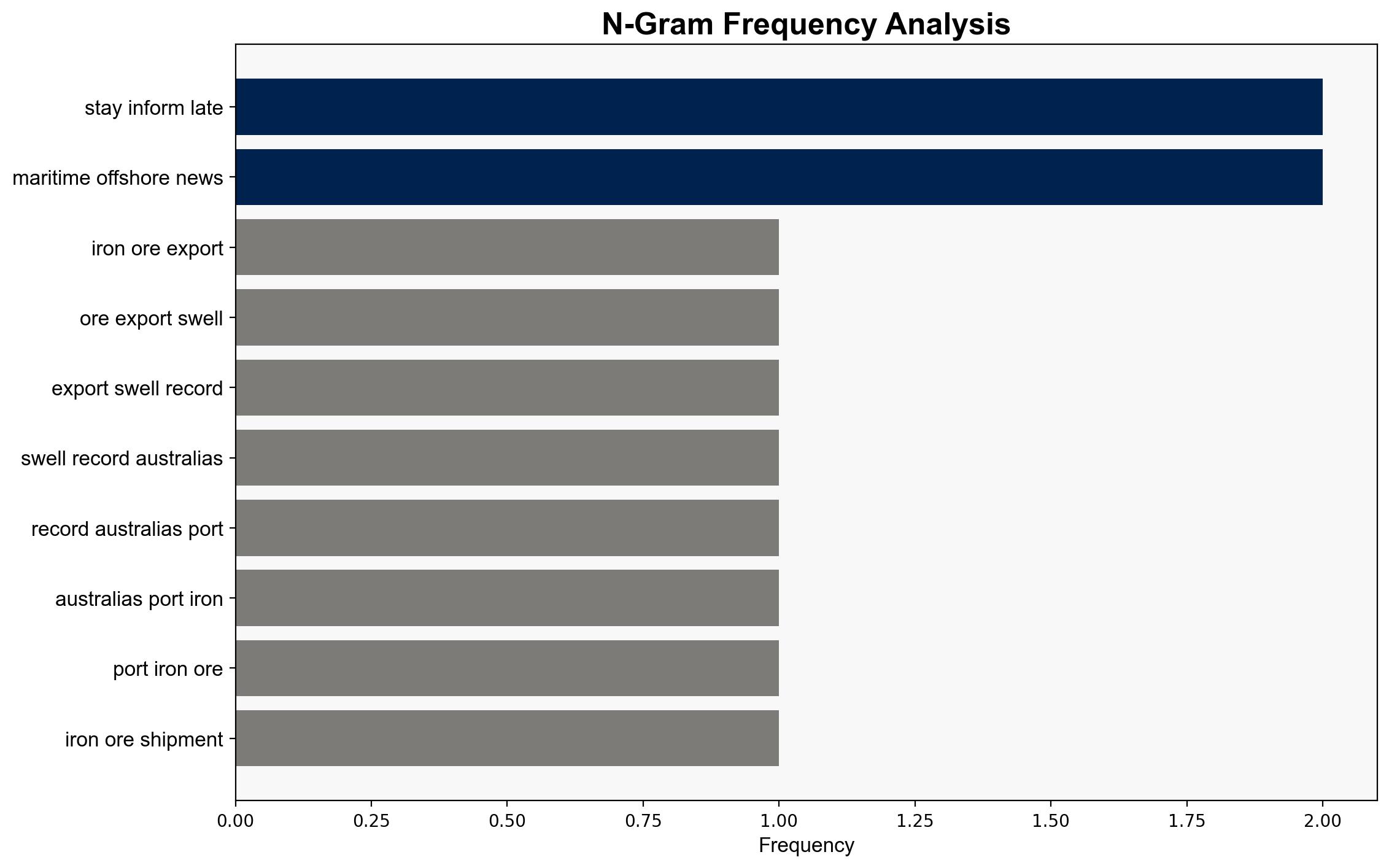Greece to Send Salvage Ship to Red Sea After Latest Houthi Attacks – gcaptain.com
Published on: 2025-07-24
Intelligence Report: Greece to Send Salvage Ship to Red Sea After Latest Houthi Attacks – gcaptain.com
1. BLUF (Bottom Line Up Front)
The most supported hypothesis is that the Houthi attacks on Greek vessels are part of a broader strategy to disrupt maritime trade routes in the Red Sea, potentially as a show of solidarity with regional allies and to exert pressure on international stakeholders. Confidence level: Moderate. Recommended action includes enhancing maritime security measures and diplomatic engagement to de-escalate tensions.
2. Competing Hypotheses
1. **Hypothesis A**: The Houthi attacks are primarily motivated by regional geopolitical dynamics, aiming to disrupt maritime trade and demonstrate solidarity with Palestinian causes, as indicated by the timing of the attacks coinciding with the Gaza conflict.
2. **Hypothesis B**: The attacks are opportunistic acts of piracy or local retaliation against foreign vessels, with no broader geopolitical strategy, driven by internal Houthi factions seeking to assert dominance or gain leverage.
Using the Analysis of Competing Hypotheses (ACH) 2.0, Hypothesis A is better supported due to the pattern of attacks aligning with regional conflicts and the involvement of Iran-aligned groups, suggesting a strategic motive.
3. Key Assumptions and Red Flags
– **Assumptions**: It is assumed that the Houthi group has the capability and intent to carry out such attacks for strategic purposes. Another assumption is that the timing of the attacks is directly linked to regional conflicts.
– **Red Flags**: The lack of direct evidence linking the attacks to specific Houthi leadership decisions could indicate internal factionalism or other actors’ involvement. Inconsistent reports on the capture and treatment of crew members suggest potential misinformation.
4. Implications and Strategic Risks
The continuation of such attacks could lead to increased insurance costs for shipping companies, rerouting of vessels, and heightened military presence in the region, escalating tensions. Economically, disruptions in the Red Sea could affect global trade, particularly for countries reliant on these shipping lanes. Geopolitically, further attacks could strain relations between regional powers and international stakeholders, potentially drawing in external military forces.
5. Recommendations and Outlook
- Enhance maritime security through increased naval patrols and collaboration with international naval forces to deter further attacks.
- Engage in diplomatic efforts with regional actors to address underlying geopolitical tensions and prevent escalation.
- Scenario Projections:
- Best Case: Successful diplomatic interventions lead to a ceasefire and reduction in attacks.
- Worst Case: Escalation of attacks prompts military intervention, disrupting global trade routes.
- Most Likely: Continued sporadic attacks with heightened security measures mitigating major disruptions.
6. Key Individuals and Entities
– Vassili Kikilias
– Renee Maltezou
– Helen Popper
– Hellenic Association of Tugboat Owners
7. Thematic Tags
national security threats, maritime security, geopolitical tensions, regional conflicts





